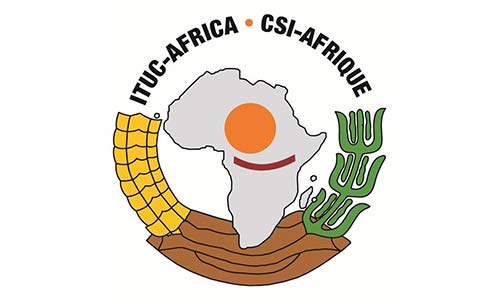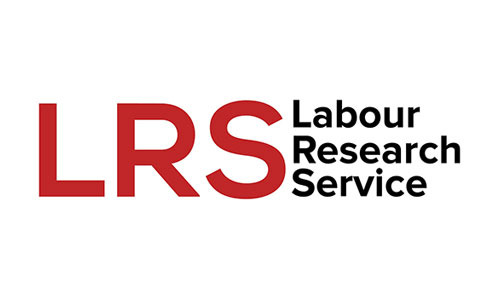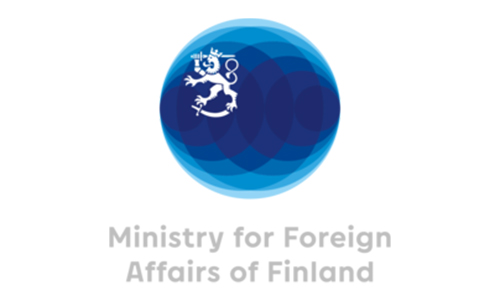“Trade is about capital and labour. We cannot truly achieve inclusive growth if workers are left behind. The Women and Youth Protocol is a welcome signal that no one should be excluded. But we need more than aspirational language in the protocol; we demand gender mainstreaming and actionable commitments.”
Rose Omamo, COTU-K Board Member and Deputy President of ITUC-Africa.

Rose Omamo, Board Member of Central Organisations of Trade Unions – Kenya (COTU-K) and Deputy President of ITUC-Africa
What have you learned from your trade and social dialogue experiences?
Formal social dialogue mechanisms are essential in trade agreements. They involve all stakeholders. We need different voices at the table to shape inclusive and equitable trade policies. The African Union has consistently advocated for stronger social dialogue to ensure that trade agreements reflect a wide range of interests and experiences. The International Labour Organization promotes social dialogue as a key principle for achieving decent work and social justice.
When people can come together, deliberate, and agree on the way forward, we create space for meaningful inclusion. This has important implications for gender equality and broader inclusion, especially for vulnerable groups who are often left out: women, youth, marginalised workers, and those in the informal economy. Women, in particular, lack adequate access to decision-making spaces and negotiating platforms in trade processes. COTU-K advocates for trade agreements that leave no one behind. Rights and representation must be at the heart of every trade agreement.
Is COTU-K involved in any formal channels of social dialogue in trade?
COTU-K has participated in various trade negotiations, including those involving the East African Community, the EU Economic Partnership Agreement, AGOA, and the Strategic Trade and Investment Partnership (formerly the Kenya–US Free Trade Agreement), despite not being formally invited to the negotiating table. We followed negotiations from the sidelines and then proactively approached our government to demand engagement. The same pattern has played out with the AfCFTA. Kenya’s government signed the AfCFTA agreement and deposited its instruments of ratification with the African Union Commission in 2018. Workers were not part of the negotiations, and the AfCFTA agreement does not include any labour provisions. We consider that a serious gap.
In November 2024, COTU-K secured a commitment from the cabinet secretary for trade, investment and industry to include unions in the AfCFTA implementation Committee. We drew on our experience over the years to strengthen our advocacy on the continental free trade agreement. COTU-K is steadily building trade expertise in the organisation and among affiliates. We aim to enhance cross-border unity for greater influence.
 ITUC-Africa delegation, TUCNA team and Ministry of Investments, Trade Industry officials | November 2024, Nairobi.
ITUC-Africa delegation, TUCNA team and Ministry of Investments, Trade Industry officials | November 2024, Nairobi.
At the continental level, COTU-K aims to enhance cross-border solidarity for influence. We are calling on governments across the continent to ensure that trade unions are part of the development of the AfCFTA. In countries that haven’t ratified the AfCFTA, unions should push governments to address labour concerns before ratification. Even if we were excluded from the initial negotiations of the agreement, we must be included in what happens next.
Does COTU-K have specific demands for the AfCFTA?
COTU-K calls on the government to uphold the ILO Convention on Freedom of Association.
We have secured a commitment from the Trade and Industry Cabinet secretary to be included in the AfCFTA implementation committee following our advocacy efforts. COTU-K is building capacity to participate meaningfully in the implementation committee and other relevant social dialogue spaces, through the support of ITUC-Africa and the Labour Research Service. COTU-K is creating awareness among affiliates on the implications of the AfCFTA in their sectors, and supports mobilising and organising for participation in the trade deal.
COTU-K calls for a simplified trade regime for women and youth in cross-border trade. We welcome the AfCFTA Protocol on Women and Youth in Trade. However, the protocol needs further scrutiny to determine how specific gender issues are addressed. How will the protocol be implemented? Who will oversee the implementation? We advocate for the inclusion of these vulnerable groups in formal social dialogue mechanisms and a commitment to enabling their effective participation in processes under the AfCFTA.
Kenya, as a leading economy in East Africa, must commit to developing value chains that incorporate less developed countries in the region.
The AfCFTA has far-reaching impacts on national economies and the lives of workers. Yet, these negotiations are currently happening only between governments. We urge governments to include workers in these critical discussions. Workers are central to a country’s GDP and deserve a seat at the table when decisions are made that affect their livelihoods. Trade unions represent the voices of those too often left out, and we will continue to advocate until workers have a voice in the development of trade policies and the AfCFTA.
RELATED ARTICLE
How to participate in AfCFTA National Implementation Committees
ESSENTIAL RESOURCES
Nelly Nyagah
Nelly Nyagah is the Head of Communications at Labour Research Service.


 ITUC-Africa delegation, TUCNA team and Ministry of Investments, Trade Industry officials | November 2024, Nairobi.
ITUC-Africa delegation, TUCNA team and Ministry of Investments, Trade Industry officials | November 2024, Nairobi.


